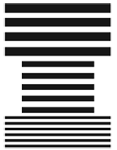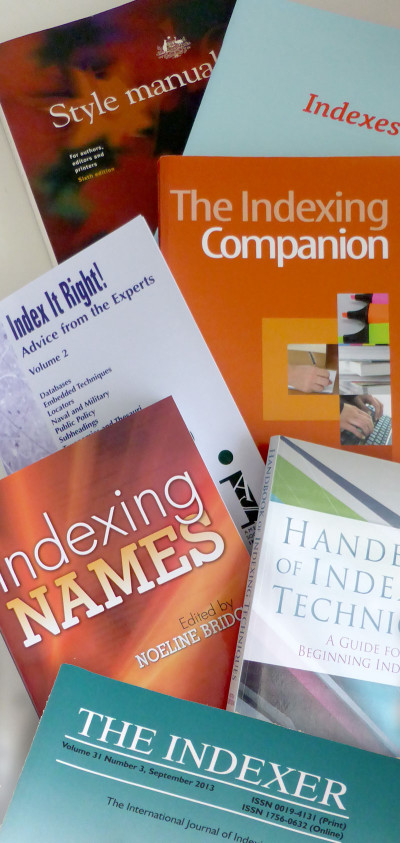- An indexing career
- Types of indexing
- Concordance or index?
- A brief history of indexing
- Training and online courses
Indexers
Indexers have a unique combination of skills. They can:
- organise recorded knowledge in any of its formats
- analyse the structure and content of particular works
- identify abstract concepts and subject topics and the relationships between them
- express complex ideas concisely
- arrange information systematically into a helpful order
- create finding aids (i.e. indexes, abstracts, subject gateways) to help users find information quickly add value to a project by providing many access points to information.
By working in conjunction with other information professionals (such as publishers, editors, librarians, database developers and webmasters) indexers can make a contribution to the planning, development and management of information projects.
What makes a good index?
A good index is:
- accurate
- impartial
- comprehensive
- easy to use, and
- points to the information you want.
A simple list of words with page numbers in not an index – it’s a concordance.
There are standards for indexes:
- Standards Australia AS/NZS 999:1999, Information and documentation: guidelines for the content, organization and presentation of indexes. It is identical with ISO 999:1999
- ANSI/NISO Z39.4-2021 Criteria for Indexes
Guidance on indexing is provided in style manuals such as the Chicago Manual of Style online (CMOS17) (Chapter 16) and the Style Manual for authors, editors and printers, 6th ed, John Wiley & Sons Australia, 2002 (Chapter 15). Note that the digital Australian Government Style Manual does not cover indexing.
Types of indexing
There are many different types of indexing, some of which require specialised skills from indexers. Examples include:
- Bibliographic and database indexing
- Genealogical indexing
- Geographical indexing
- Book indexing
- Legal indexing
- Periodical and newspaper indexing
- Pictorial indexing
- Subject gateways
- Website and metadata indexing
Learn more
There are a range of courses and workshops on indexing, and the various ANZSI groups offer a chance to meet others interested in indexing at meetings.
Resources and reading lists for ANZSI members are listed in the members’ area of this website.

